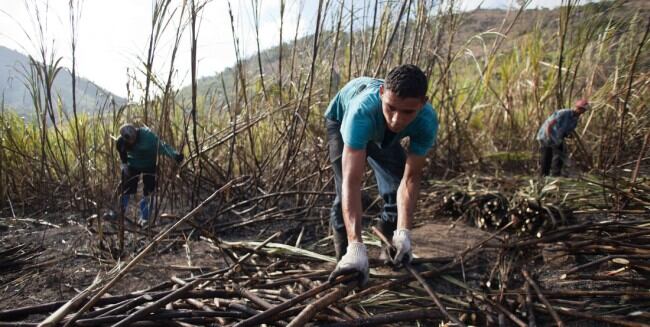Kellogg’s climate change plan came in light of global NGO Oxfam’s Standing on the Sidelines report, launched mid-May last year, that called out the ‘Big 10’ food companies for “significant” GHG emissions.
Oxfam praised Kellogg’s announcement and said it went “slightly beyond” what General Mills announced around two weeks ago.
Kellogg pledged to release its GHG emissions targets by December 2015; reveal its top three palm oil, soy and sugar cane suppliers; and achieve zero net deforestation in high-risk supply chains by 2020 – much in line with General Mills’ pledge.
However, Kellogg had gone beyond General Mills’ pledge in a couple of areas – supplier transparency and climate change adaptation strategy, said Oxfam.
Transparency of supply
Kellogg called on all its key suppliers to measure and publicly disclose their emissions and reduction targets; General Mills only pledged to “assess supplier practices”.
Oxfam: 'What Kellogg’s commitment does is add a layer of public disclosure and transparency so that other interested people can look at what they’re [Kellogg and its suppliers] doing and really asses it outside of the internal documents.'
Speaking to BakeryandSnacks.com, Oxfam America’s senior press officer Ben Grossman-Cohen said requiring suppliers to measure and release emissions was something Oxfam had always called for, but had recommended it as a ‘next step’ for industry after initial climate change commitments.
Kellogg, however, considered it an important immediate measure, he said.
“I think General Mills will take a number of measures to achieve their commitments that may be similar to Kellogg, but what Kellogg’s commitment does is add a layer of public disclosure and transparency so that other interested people can look at what they’re [Kellogg and its suppliers] doing and really asses it outside of the internal documents.”
Kellogg was making itself mutually accountable for the impact supply chains have on the environment, he said, which was the right thing to do.

Adaptation plan
Kellogg also said it would develop a climate change adaptation plan – a future plan of action for its supply chain as weather conditions changed.
“It’s something that every food and beverage company needs to wrestle with; the change in weather and climate patterns is something that is increasingly going to be an issue for supply chains… It’s within Kellogg’s business interest to make sure they’re putting in place adequate measures to prepare for these new conditions – this pledge is articulating a commitment to put together a plan to do that,” Grossman-Cohen said.
Importantly for Oxfam, he said the plan included smallholder farmers in poor countries – “often the most vulnerable to extreme weather and climate change”.
Will change happen?
Both Kellogg and General Mills had now publicly announced plans to act on reducing GHG emissions and increasing transparency throughout the supply chains and Oxfam said it was looking forward to tracking actions.
Monique van Zijl, campaign manager for Oxfam’s Behind the Brands campaign, said Kellogg’s commitment added momentum to calls on governments and the wider food and agriculture industry to recognize climate change is real.
“Kellogg is joining a growing list of companies that are putting the weight of their brands behind climate action,” she said.
Asked if Kellogg’s commitment was realistic, Grossman-Cohen said: “These are measures that are within their control; that are achievable; that just really require the political will from industry to accomplish. So it’s not something that’s easy, but it’s definitely technically feasible.”
Kellogg’s full pledge is available HERE.
